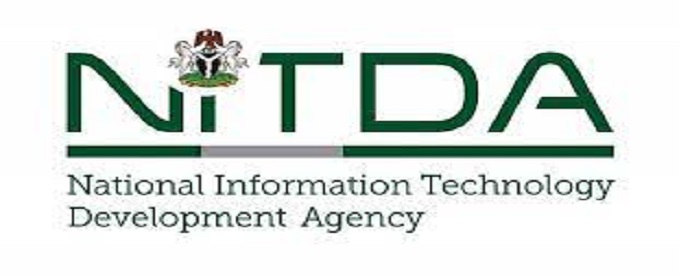Telecom
Putting the Records Straight: NITDA Clarifies Engagement with ASUU’s UTAS Platform

The National Information Technology Development Agency (NITDA) has emphasised that it subjected the University Transparency and Accountability Solution (UTAS) of the Academic Staff Union of Universities (ASUU) to a review to allow for a comprehensive solution that equals standard.

Mrs Hadiza Umar, head, Corporate Affairs and External Relations of the agency, said this on Saturday in a statement issued in Abuja.
Umar said it became necessary for the agency to set the record straight owing to biased information in the public domain about the involvement of NITDA to the solution.
She explained that the Act establishing NITDA mandated it to create a framework for the planning, research, development, standardisation, application, coordination, monitoring, evaluation and regulation of Information Technology (IT) practices in Nigeria.
To that effect, Umar said the agency had over the years, issued series of regulatory instruments, including the Software Testing and Quality Assurance Framework and Guideline issued in 2016.
“This regulatory instrument, currently being reviewed, provides guidelines for the design, development and testing of software projects in Nigeria.
“Furthermore, Section 10 of the Guidelines for Nigerian Content Development in ICT, 2019, provided detailed guidelines and expectations for Indigenous Software Development and Software Enabled Products and Services.
“In line with its mandate, the agency has been registering indigenous software solutions and part of the registration process requires that solutions are subjected to tests in line with the requirements of the Software Testing and Quality Assurance Framework and Guideline, and the Guidelines for Nigerian Content Development in ICT.
“It is common knowledge that ASUU has been engaging the Federal Government on a number of issues including payment of promotion arrears, earned academic allowance, funding for revitalisation of public Universities, and adoption of UTAS as payment platform for universities.
“On the October 14, 2020, NITDA was invited to participate in an interactive session between ASUU, Federal Government and the Legislature to avail ASUU the opportunity to demonstrate the UTAS platform,” Umar said.
According to her, as part of the conditions for acceptance of UTAS as payment platform for public universities by the Federal Government, NITDA was directed to subject the platform to Integrity Test and advise the government appropriately.
She added that the agency conducted three out of eight tests specified in the Software Testing and Quality Assurance Framework and Guideline.
Umar said the tests included User Acceptance Test (UAT), Stress Test, and Vulnerability Assessment and Penetration Test (VAPT).
She added that NITDA met with ASUU on Oct. 22, 2020, to discuss the modalities of the assessment of the solution, which involved the National Universities Commission (NUC) and Office of the Accountant General of the Federation.
“Furthermore, documents necessary for effective planning and execution of the tests were requested.
“Upon receipt of the documents from ASUU as well as access details of the UTAS platform in January, 2021, the agency’s team carried out basic Functionality/User Acceptance Test on the platform.
“As NUC conducted UAT, NITDA felt it can use the report produced by NUC for its report.
“However, upon review, it was observed that the Solution was demonstrated to the Principal Officers in a similar way it was demonstrated at the Accountant General’s Office.
The Agency decided that further UAT be carried out with actual end-users from the University System,” she said.
She explained that arrangements were made and 46 staff members from 28 Federal Universities, mainly from Vice Chancellor’s Office, Human Resources, Accounts and Bursary participated in the UAT that held at the NUC complex on Aug. 10, 2021.
According to her, although the UAT was carried out as planned, challenges were encountered that negatively impacted on the outcome of the assessment.
Umar added that the agency’s team also carried out series of Vulnerability Assessment and Penetration Tests on the UTAS platform, which revealed high risk vulnerabilities that were likely to negatively impact on the platform, if exploited.
“Furthermore, two Low Risk vulnerabilities were identified and all discussed with the ASUU team and a further assessment carried out on the updated version of the Solution revealed that the High Risk Vulnerabilities have been addressed.
“However, one Medium Risk, three Low Risks and 44 Informational Risks were identified and were adequately communicated to the relevant stakeholders including ASUU,” the spokesperson said.
She added that a comprehensive report outlining all the tests carried out and issues identified were submitted to Dr Isa Pantami, the Minister of Communications and Digital Economy, on Dec. 3, 2021, and also to the Chief Conciliator, Dr Chris Ngige, the Minister of Labour and Employment, as well as other stakeholders in ASUU.
Umar recalled that on Feb. 22, 2022, during the conciliation meeting at the instance of Ngige, it was resolved that NITDA worked with ASUU and subject UTAS to re-assessment with key members of the conciliation team in attendance during the Technical Team’s sessions as observers.
“It may interest the agency’s stakeholders to know that NITDA, as a responsible agency of government, made all arrangements to ensure that the exercise was carried out successfully.
“The interaction commenced on the March 8, 2022, with discussion on the methodology to be used as specified in the Software Testing and Quality Assurance Framework and Guideline.
“Upon reaching agreement and starting the actual test on the Solution, a critical error occurred and the test could not continue and as a result, the interaction had to be postponed to enable the ASUU Team rectify the issue.
“Considering the challenge encountered, the assessment methodology had to be reviewed to facilitate daily remediation of critical issues as they occur which is against NITDA’s Standard Operating Procedure for such exercises,” she said.
She recognised the attention of stakeholders and the general public to the need for the UTAS platform to be sufficiently robust with key functionalities implemented before being deployed to the production environment.
Umar reiterated that the solution as currently implemented was limited, adding that there are critical functionalities that needed to be implemented, tested and passed before the Solution could be considered to meet NITDA’s due diligent requirements.
“These areas of improvement have been fully documented and shared with the ASUU team for necessary action.
“It is expected that ASUU will improve on the areas identified, work on the security issues flagged and resubmit the Solution for further assessment.
“The agency wish to use this opportunity to assure stakeholders and the general public of its commitment to its mandate and the vision of proactively facilitating the development of Nigeria into a sustainable digital economy by creating an enabling environment where Nigerians develop, adopt and derive value from digital technology,” the statement read in part.
Telecom
FG Expands 3MTT Programme Across the Country

Dr Bosun Tijani, Nigeria’s minister of communications, innovation, and digital economy, has revealed that the federal government’s 3 Million Technical Talent (3MTT) programme has trained over 135,000 citizens as it moves from pilot to national level.

Tijani announced this in an update on the program’s success, stating that the beneficiaries were trained in three batches.
He also stated that the initiative’s community-based learning tools had provided over 300,000 extra learners with access to digital skills training across the country.
According to the minister, the program has also enabled the creation of about 15,000 job, entrepreneurship, and career development in Nigeria’s developing digital economy.
He further revealed that more than 1.8 million Nigerians are currently in the 3MTT pipeline, as the government works toward its target of equipping three million citizens with in-demand digital skills aligned with local and global labour market needs.
As the programme enters its scale-up phase, Tijani said the government’s focus will shift toward deepening impact rather than just expanding numbers.
Key priorities, he explained, include strengthening the 3MTT alumni community, widening access to economic opportunities and ensuring that skills acquired through the programme translate into measurable outcomes such as jobs, business creation and innovation.
To support this phase, the federal government has introduced the #3MTTImpactChallenge, an initiative aimed at assessing the programme’s real-world impact
Through the challenge, fellows and partners are invited to share personal stories on how 3MTT has shaped their professional journeys as part of a National Impact Reflection exercise.
Participants are expected to share their experiences across social media platforms, with selected winners set to receive prizes including laptops, e-tablets, data bundles and other incentives.
Telecom
MTN Foundation Trains 2,000+ Young Nigerians in ICT for SME Growth

MTN Foundation has kicked off the seventh phase of its ICT business skills training programme, targeting more than 2,000 entrepreneurs, mostly from Nigeria’s small and medium-scale enterprises (SMEs), in support of the Federal Government’s National Digital Economy and SME Development agenda.

MTN Foundation
The virtual training’s first week ran from Monday, January 5, to Friday, January 9, 2026. It equips small business owners and aspiring entrepreneurs with simple digital tools to shift from paper-based operations to efficient, productivity-boosting systems.
Business analyst Babajide Jolaolu-Kehinde, moderated by Temiloluwa Oyekanmi, programme and partnerships lead, introduced the SWOT framework—Strengths, Weaknesses, Opportunities, and Threats—to guide participants in assessing and improving their businesses.
Jolaolu-Kehinde stressed digital record-keeping, online payments, and customer data tracking for measurable growth, aligning with government efforts to formalise SMEs. “Hope is good, but action and systems make growth happen,” he said.
Trainers showcased real-world examples: traders using handwritten ledgers expanded reach via WhatsApp Business, online marketplaces, and spreadsheets; others grew by accepting mobile transfers over cash and digital orders to tap distant markets.
Manual operations limit sales visibility and customer insights, experts noted, while digital tools deliver real-time data, cut errors, and unlock broader markets.
Participants must adopt at least one digital tool post-onboarding, with organisers promising follow-up workshops and mentorship. The four-week programme aims to bolster SME growth and Nigeria’s economic goals.
Telecom
Spacecoin Secures Licenses to Roll Out Satellite Connectivity in Nigeria, Kenya

Spacecoin, US-based, has announced the signing of recent agreements with local authorities and operators to launch satellite connectivity pilot projects in Africa.

The initiatives, focused on Kenya and Nigeria, aim to serve areas where terrestrial networks remain limited or unavailable.
n Kenya, Spacecoin has obtained a transmission license from the Communications Authority, allowing it to test satellite-based solutions for connectivity and Internet of Things (IoT) monitoring, particularly in rural and peri-urban areas with limited internet access.
According to the Kenyan regulator, internet penetration remains below 50% of the population, despite mobile penetration exceeding 130%.
In parallel, the company is continuing operations in Nigeria under an existing license issued by the Nigerian Communications Commission (NCC).
This authorization supports initiatives aimed at delivering affordable broadband connectivity to isolated and underserved communities.
Spacecoin’s approach is based on a decentralized satellite network using nanosatellites in low Earth orbit (LEO).
Combined with blockchain-based protocols, this architecture is intended to offer more flexible and cost-effective connectivity services than traditional networks, while also enabling the integration of IoT solutions for a range of uses, from smart agriculture to infrastructure monitoring.
These projects are part of a broader strategy to help narrow Africa’s digital divide, where a significant share of the population still lacks access to reliable internet services.
Satellite technology is increasingly viewed as a complement to terrestrial infrastructure, particularly in hard-to-reach areas where deployment costs and geographic constraints remain high.
Beyond Africa, Spacecoin is also running pilot projects in Asia, working with local partners to test the viability of its model across different regulatory and geographic environments.
According to the company’s management, growing interest from regulators reflects a shift toward solutions capable of reaching populations that have long been excluded from internet access.

 General News3 days ago
General News3 days agoCybersecurity Firm Detects a Wave of Crypto Phishing Following BlockFi Bankruptcy

 News3 days ago
News3 days agoIMF Upgrades Nigeria’s 2026 Growth Projection to 4.4%

 Telecom3 days ago
Telecom3 days agoNCC Unveils Spectrum Roadmap to Power Nigeria’s $1tr Digital Economy

 Telecom2 days ago
Telecom2 days agoSpacecoin Secures Licenses to Roll Out Satellite Connectivity in Nigeria, Kenya

 Telecom3 days ago
Telecom3 days agoNCC Gives Amazon’s Kuiper, BeetleSat Nod to Provide Satellite Broadband Services in Nigeria

 News3 days ago
News3 days agoNew Horizons Invests N50m to Empower Almajiris with Skills

 General News3 days ago
General News3 days agoFG Rejects Northern Elders’ Gold Refinery Siting Claim

 E-Financial3 days ago
E-Financial3 days agoKongaPay K-Save Users Save over N3.2Bn



























